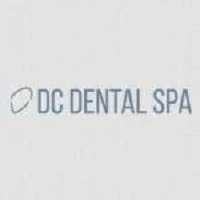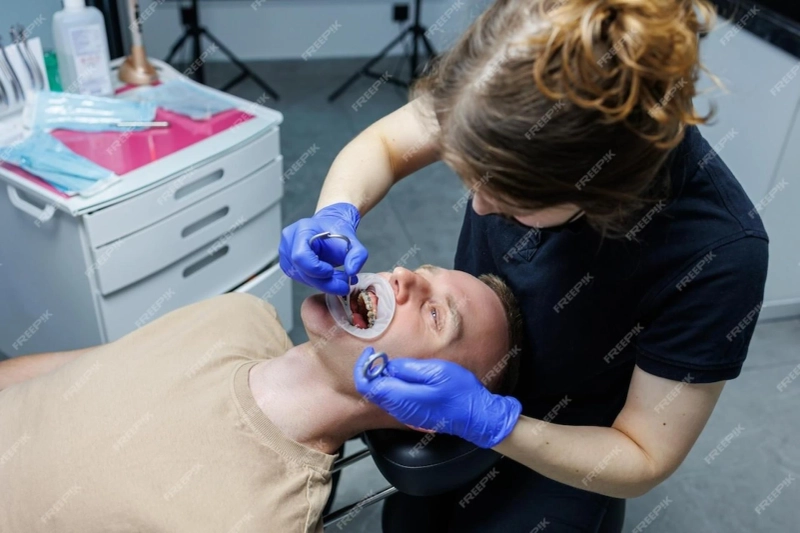Sleep apnea is a severe sleep disorder that affects millions of people worldwide. It occurs when breathing repeatedly stops and starts during sleep, leading to poor oxygen supply. While sleep apnea is often associated with snoring and daytime fatigue, many people don’t realize its impact on oral health. If left untreated, sleep apnea Washington can lead to significant dental problems, including jaw pain, teeth grinding, and gum disease.
Understanding the connection between sleep apnea and your oral health is crucial for early detection and treatment.
Here Are Sleep Apnea’s Effects on Your Jaw and Teeth.
How Sleep Apnea Affects Your Jaw and Teeth
Sleep apnea can directly impact your oral health in several ways. Here’s how:
1. Teeth Grinding (Bruxism)
Many people with sleep apnea grind or clench their teeth during sleep, a condition known as bruxism. This excessive grinding puts pressure on the teeth, leading to wear and tear, enamel erosion, tooth sensitivity, and even fractures.
2. Jaw Pain and TMJ Disorders
Obstructive sleep apnea (OSA) can strain the jaw muscles and joints, leading to temporomandibular joint (TMJ) disorders. This can cause jaw stiffness, difficulty chewing, headaches, and clicking or popping sounds when opening and closing the mouth.
3. Dry Mouth and Increased Risk of Cavities
People with sleep apnea often breathe through their mouths at night, leading to dry mouth. A lack of saliva reduces the mouth’s natural ability to wash away bacteria, increasing the risk of tooth decay, cavities, and bad breath.
4. Gum Disease (Periodontitis)
Sleep apnea has been linked to an increased risk of gum disease. The condition can cause inflammation in the body, contributing to periodontal disease. Symptoms of gum disease include bleeding gums, bad breath, and gum recession.
5. Misaligned Bite
Sleep apnea can cause muscle imbalances in the jaw, leading to bite problems. This can result in an overbite, underbite, or crossbite, which may require orthodontic treatment to correct.
Signs to Watch For
If you suspect sleep apnea is affecting your oral health, look out for these warning signs:
- Morning Jaw Pain or Headaches – Waking up with jaw stiffness or headaches can indicate excessive teeth grinding or TMJ strain.
- Worn or Cracked Teeth – If your teeth appear flattened, chipped, or fractured, it could be due to bruxism caused by sleep apnea.
- Clicking or Popping Jaw – Difficulty opening or closing your mouth smoothly may indicate TMJ disorder linked to sleep apnea.
- Dry Mouth or Bad Breath in the Morning – Frequent dry mouth increases the risk of bacterial buildup, leading to bad breath and cavities.
- Receding Gums or Gum Sensitivity – If your gums are inflamed, swollen, or bleeding, it could indicate gum disease associated with sleep apnea.
- Frequent Snoring or Gasping for Air at Night – If your partner notices you snore loudly or stop breathing during sleep, you should seek medical evaluation for sleep apnea.
What You Can Do to Protect Your Jaw and Teeth
If you suspect that sleep apnea is affecting your oral health, here are some steps you can take:
1. Visit a Dentist or Sleep Specialist
An experienced Washington dentist can check for signs of bruxism, TMJ disorders, or gum disease, while a sleep specialist can diagnose sleep apnea through a sleep study.
2. Use a Custom Night Guard
A custom-fitted night guard can help protect your teeth from grinding and relieve jaw strain, reducing the risk of TMJ pain and tooth damage.
3. Consider an Oral Appliance for Sleep Apnea
If you have mild to moderate sleep apnea, your dentist may recommend an oral appliance that repositions the jaw to keep the airway open during sleep.
4. Improve Your Sleeping Habits
Sleeping on your side instead of your back, using a humidifier, and keeping your bedroom air clean can help reduce sleep apnea symptoms.
5. Seek Treatment for Gum Disease
If you have signs of gum disease, your dentist can recommend deep cleaning treatments, antibiotics, or other therapies to prevent further complications.
6. Consider CPAP Therapy
A continuous positive airway pressure (CPAP) machine can help maintain steady airflow for moderate to severe sleep apnea, reducing oral health complications.
Conclusion
Sleep apnea doesn’t just affect your sleep—it can seriously affect your oral health. From teeth grinding and TMJ pain to dry mouth and gum disease, the effects can be damaging if left untreated. If you experience any warning signs like jaw pain, worn teeth, or bad breath, don’t ignore them. Seeking help from a dentist or sleep specialist can improve your sleep quality and oral health.
Early intervention is key to preventing long-term damage, so if you suspect sleep apnea is affecting your jaw and teeth, schedule a dental check-up today!



